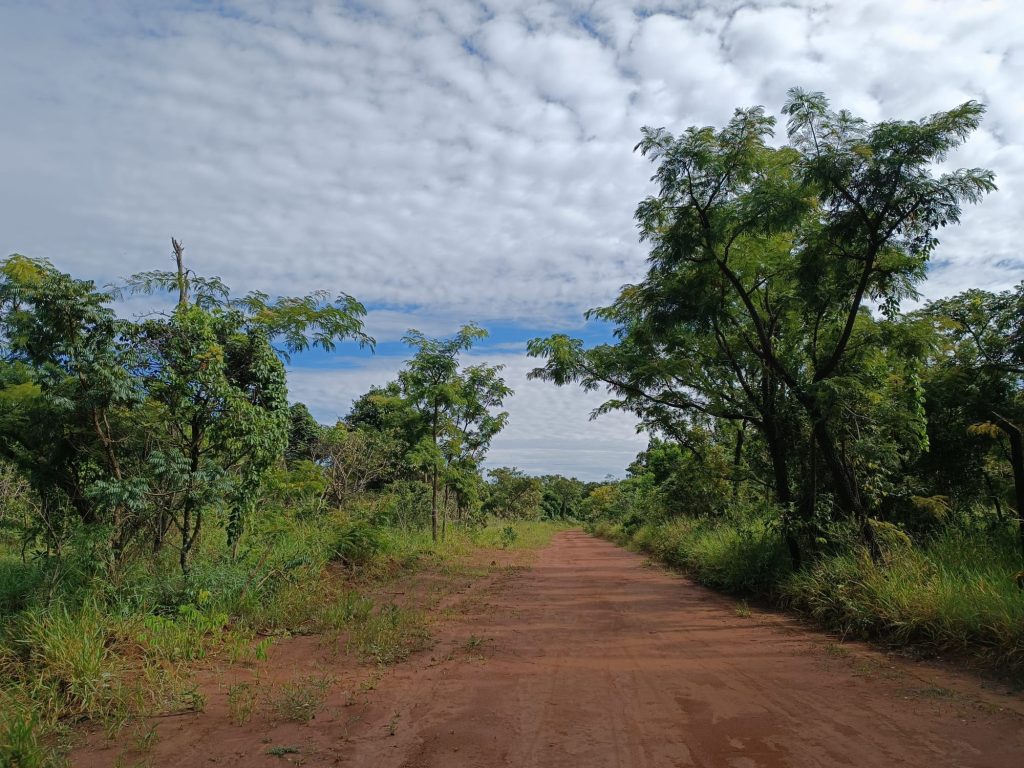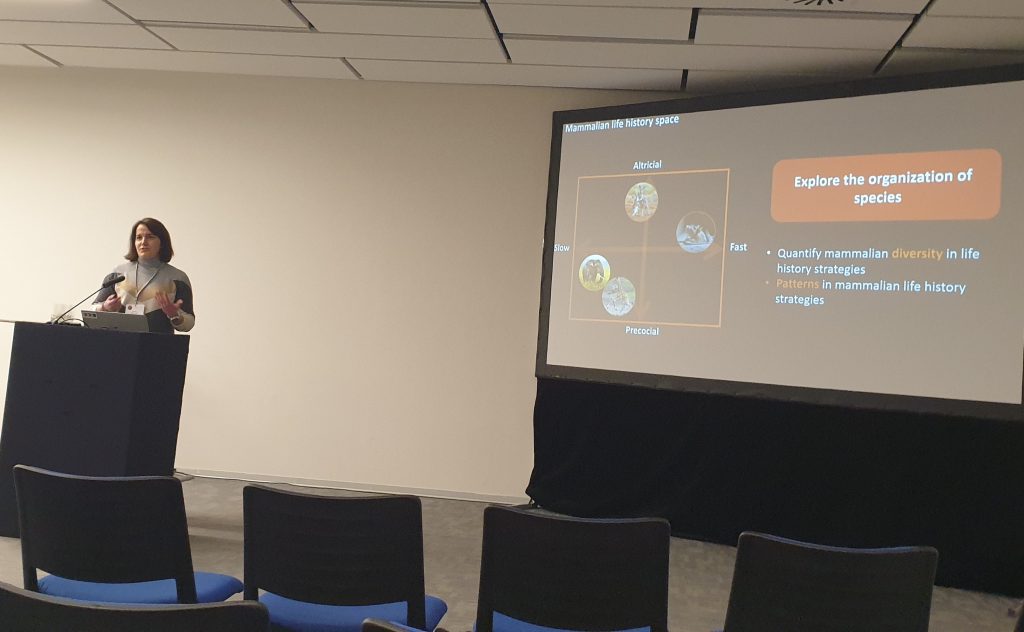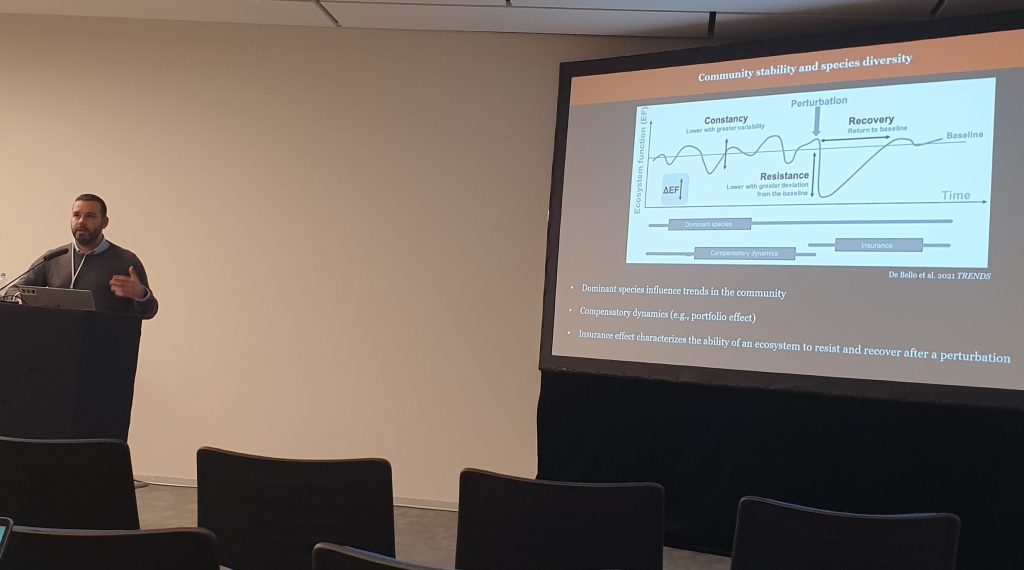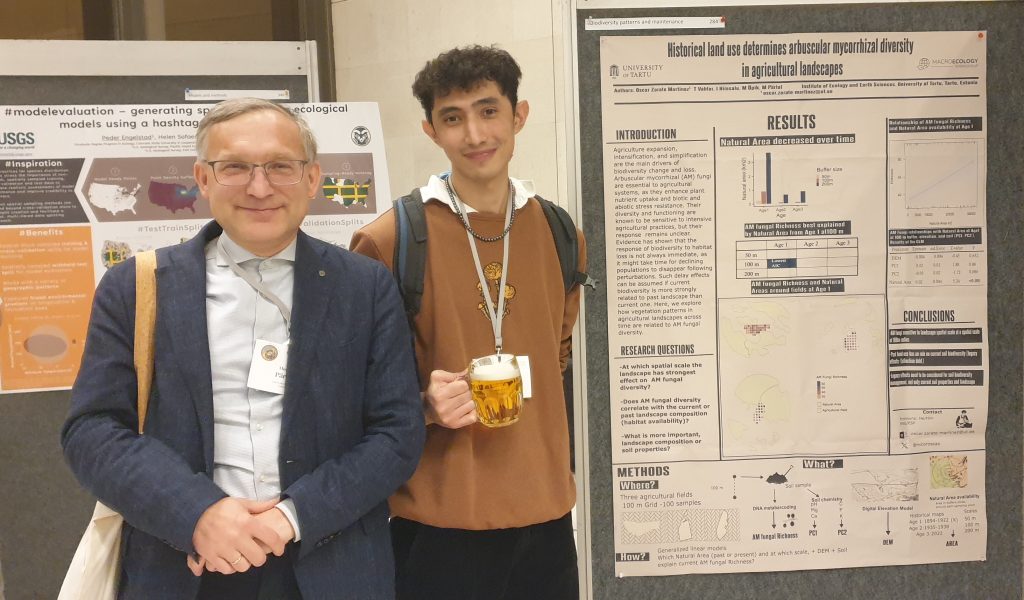In February, Bruno spent a few weeks in Brazil doing fieldwork. Together with colleagues from the UT Chair of Plant Ecology, they collected soil samples in two biodiversity hotspots: the Amazon rainforest and the Cerrado tropical savanna.

Our workgroup members were successful in the Estonian Research Council 2023 calls for grant applications!
Diego's postdoctoral project 'ReStPool: Examining the resilience and stability of plant communities through the lens of the species pool concept' was funded by the personal research grant. In the next three years, Diego will be working with senior researcher Francesco de Bello from the Spanish Science Center (CSIC).
Carlos received a personal research team grant for his project 'Predictions of Future Ecosystem Functioning and Community Assembly Using a Unified Plant Functional Space'. The project will last for five years.
Our workgroup will also participate in the new Centre of Excellence project 'Agroecology and new crops in future climates'. The project leader is Ülo Niinemets from the Estonian Life Sciences University and includes several workgroups from University of Tartu and the Centre of Estonian Rural Research and Knowledge.
The government of Estonia announced the laureates of this year’s national research awards, and among the laureates were also our workgroup members! In the field of geology and biology, the award was granted to Carlos Pérez Carmona (head of the collective), Meelis Pärtel, Riin Tamme, and Aurèle Éric Toussaint for their series of works “Global view of the functional diversity of different taxonomic groups”. On 21st February, the award ceremony took place in the Estonian Academy of Sciences in Tallinn, where Carlos, Meelis and Riin also participated. Since Aurèle is now working in France and was not able to participate in the event, then we can held our own ceremony for him next time he visits.
We are very happy and proud of Carlos, who has just been awarded the European Research Council Consolidator Grant for an ambitious project to deepen our understanding of how plants respond to environmental change and how these responses affect ecosystems worldwide. With his colleagues, Carlos will integrate above- and belowground plant traits data, which will allow to predict the effects of different global change scenarios on plant communities and their functioning across scales. The ERC Consolidator Grant amount is €2 million and the research project will run for five years. More information can be found from the University of Tartu press release.
We participated in the first conference of 2024! From 7th to 11th January the 11th Biennial Conference of the International Biogeography Society was held in Prague, Czechia. Our workgroup was represented by Eleonora, Enrico, Oscar and Meelis. Eleonora and Enrico presented in the functional macroecology session. Eleonora's talk was about mammal life history strategies, and Enrico showed how functional diversity promotes stability over time in plant and tetrapod communities. Oscar had a poster presentation about the effects of historical land use on mycorrhizal diversity in agricultural landscapes, and Meelis's poster showcased the results from the DarkDivNet global initiative.



On 12th of May, Diego Trindade successfully defended his thesis "Dark diversity dynamics linked to global change: taxonomic and functional perspective" and was awarded with the degree of Doctor of Philosophy in Botany and Mycology. Opponent Petr Keil from the Czech University of Life Sciences Prague helped to lead the interesting discussion. Diego was supervised by Meelis Pärtel and Carlos Carmona.
Congratulations, doctor Trindade!
Karl Hendrik Tamkivi, who wrote his Bachelor thesis in our workgroup, was just awarded a first prize at the National Research Contest for University Students! He got the award in the natural sciences category and his thesis was about bats functional space at the global scale. His supervisors were Meelis, Carlos and Aurèle who were also recognised at the contest for thesis supervision. Congratulations, Karl Hendrik!
Photo: Henri-Kristian Kirsip